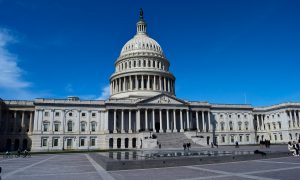With New York and California in a mess, the cannabis industry needs rescheduling
Consumers of marijuana have increased in unprecedented numbers. An example is in recently recreational legal Michigan. It looks as if in their first year, marijuana sales will surpass $3 billion, helped by record-breaking July. Feeding the boom is Gen Z turning away from alcohol and embracing the healthier weed. But chaotic state enforcement, wacky tax burdens and business killing restrictions including lack of interstate commerce has wrecked havoc in the industry.
RELATED: California or New York, Which Has The Biggest Marijuana Mess
Biden’s slow moving process toward federal action received a big bump when his administration asked for rescheduling last year. Now the DEA causes a stir regarding marijuana rescheduling. Long the driver of the War On Drugs, they asserted they are the decider in what is going on. The reason for the statement? U.S. Rep. Earl Blumenauer and 30 others expressed support for marijuana reform at the federal level and encouraging moving marijuana to Schedule III from Schedule I drug.

Terran Cooper, the regulatory consultant at Falcon Rappaport & Berkman LLP, a key cannabis law firm shared “It seems that many people are alarmed upon the realization that the very agency tasked with enforcing the Controlled Substances Act, is also the one tasked with potentially rescheduling cannabis.”
“The only confidence that DEA will choose to reschedule cannabis comes from precedent. The Congressional Research Service reported that they were unaware of any instances where the DEA rejected a rescheduling recommendation by the FDA & HHS. While the DEA can, and ultimately may, decide not to reschedule cannabis – it would be an unprecedented move.” shared Cooper.
RELATED: How To Be Discreet When Using Weed
Rep. Earl Blumenauer and his allies want marijuana to be fully removed from enforcement under the Controlled Substances Act. The good news is the HHS review, sent to the DEA last August, recommended marijuana be reclassified as a Schedule III substance, which have accepted medical uses and a low to moderate risk of dependence. This would be a game changer for the industry. The letter could mean the DEA plans to slow walk the change.
The DEA has not be a traditional ally of the cannabis industry. And until the administration releases the final ruling, the industry will be wary of the future.


